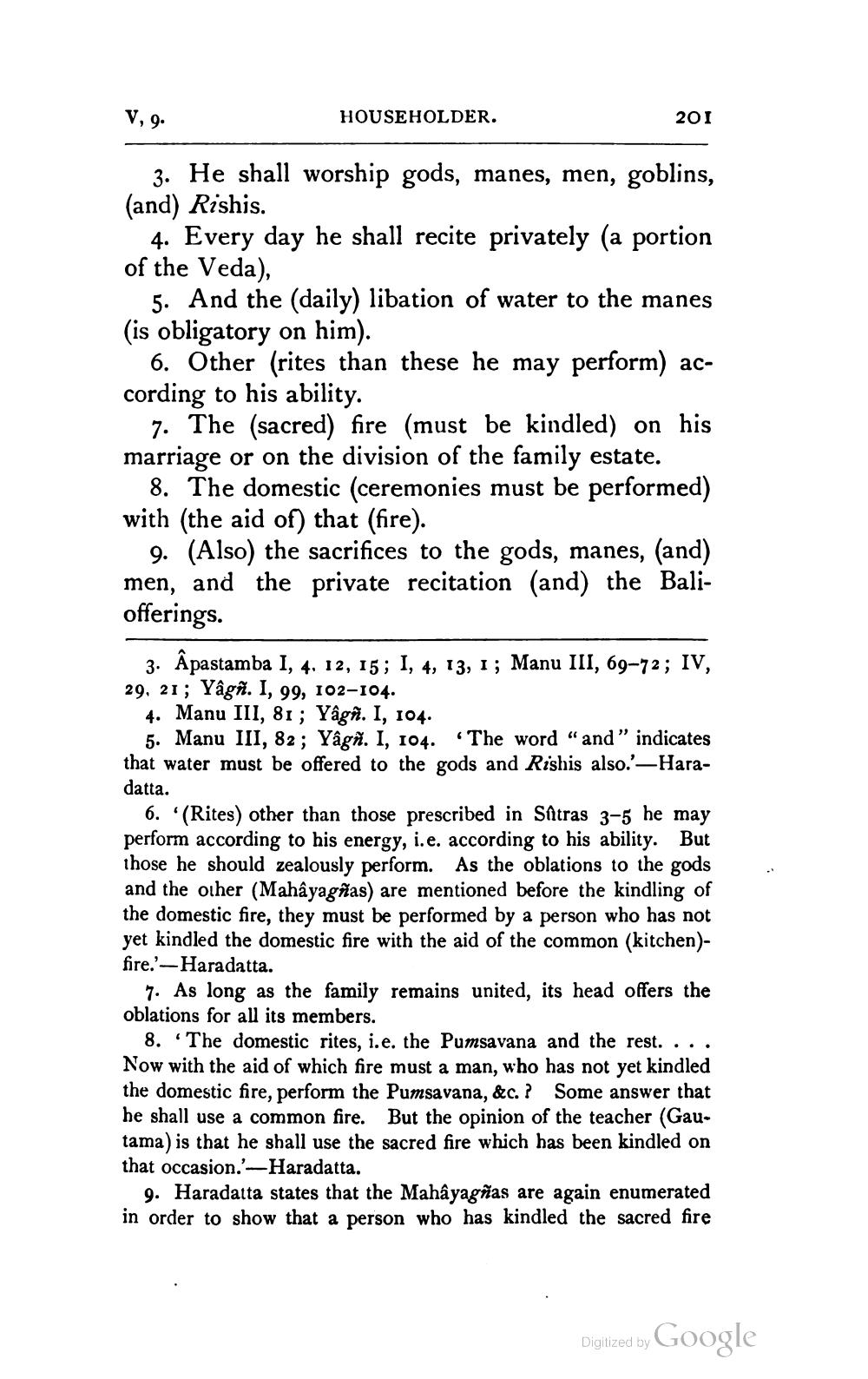________________
V, 9.
HOUSEHOLDER.
201
3. He shall worship gods, manes, men, goblins, (and) Rishis.
4. Every day he shall recite privately (a portion of the Veda),
5. And the (daily) libation of water to the manes (is obligatory on him).
6. Other (rites than these he may perform) according to his ability.
7. The (sacred) fire (must be kindled) on his marriage or on the division of the family estate.
8. The domestic (ceremonies must be performed) with the aid of) that (fire).
9. (Also) the sacrifices to the gods, manes, (and) men, and the private recitation (and) the Baliofferings.
3. Âpastamba I, 4. 12, 15; I, 4, 13, 1; Manu III, 69–72; IV, 29, 21; Yâgñ. I, 99, 102-104.
4. Manu III, 81; Yâgħ. I, 104.
5. Manu III, 82; Yâgñ. I, 104. The word "and" indicates that water must be offered to the gods and Rishis also.'-Haradatta.
6. '(Rites) other than those prescribed in Sätras 3-5 he may perform according to his energy, i.e. according to his ability. But those he should zealously perform. As the oblations to the gods and the other (Mahâyagñas) are mentioned before the kindling of the domestic fire, they must be performed by a person who has not yet kindled the domestic fire with the aid of the common (kitchen)fire.'-Haradatta.
7. As long as the family remains united, its head offers the oblations for all its members.
8. "The domestic rites, i.e. the Pumsavana and the rest. ... Now with the aid of which fire must a man, who has not yet kindled the domestic fire, perform the Pumsavana, &c. ? Some answer that he shall use a common fire. But the opinion of the teacher (Gautama) is that he shall use the sacred fire which has been kindled on that occasion.'-Haradatta.
9. Haradatta states that the Mahayagñas are again enumerated in order to show that a person who has kindled the sacred fire
Diglized by Google




